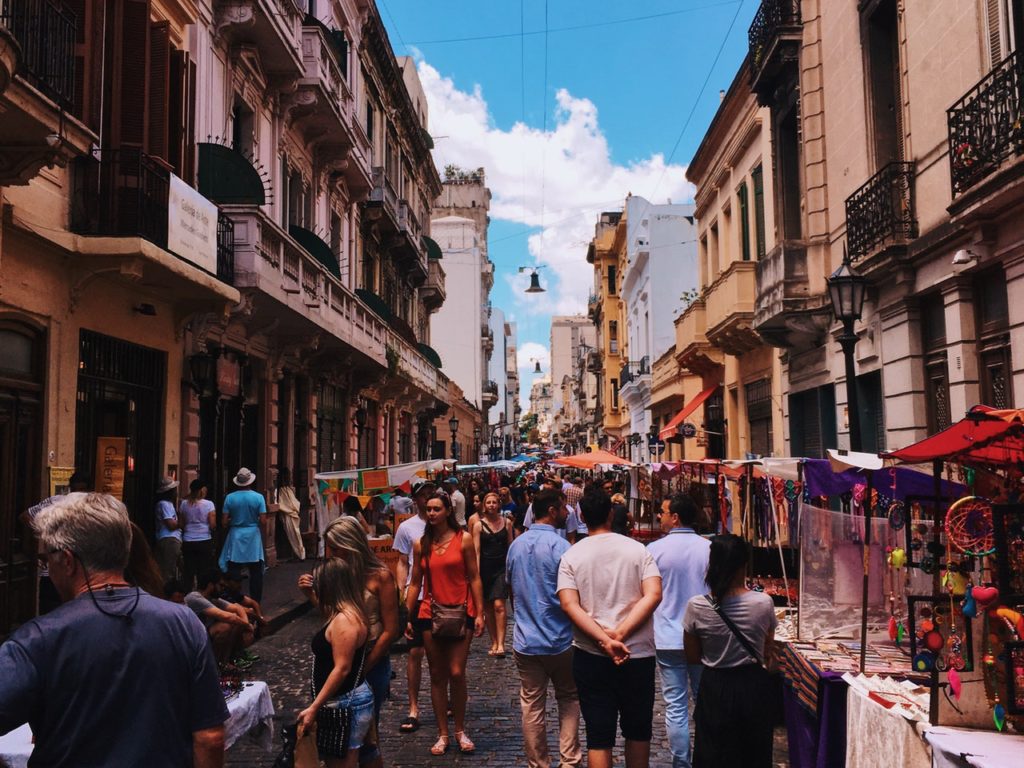A summit of solid success: prospects for the G20’s Buenos Aires Summit
The 13th G20 summit, taking place in Buenos Aires, Argentina, on 30 November–1 December 2018, will be highly significant. The 10th anniversary of the first G20 summit held in Washington DC in November 2008, it will be the first hosted by Argentina and the first by a G20 member outside the smaller G7, the BRICS of Brazil, Russia, India, China and South Africa, or the MIKTA of Mexico, Indonesia, Korea, Turkey and Australia. It will be the first hosted in South America, a rapidly growing, reforming region. It will be hosted by Argentinian president Mauricio Macri, who was first elected in 2015. It will take place after Argentina’s Latin American neighbours of Brazil and Mexico have elected new leaders and after the mid-term elections in the United States on 6 November.
Assembling in Argentina will be the G20 veterans of Germany’s Angela Merkel, who hosted the summit in 2017, Japan’s Shinzo Abe, who will host in 2019, China’s Xi Jinping, Canada’s Justin Trudeau, India’s Narendra Modi, Turkey’s Recip Tayyip Erdogan, Indonesia’s Joko Widodo, Saudi Arabia’s Prince Mohammad Bin Salman, the European Commission’s Jean-Claude Juncker and the European Council’s Donald Tusk. The newer arrivals are Australia’s Scott Morrison, Korea’s Moon Jae-in, the United Kingdom’s Theresa May, France’s Emmanuel Macron, South Africa’s Cyril Ramaphosa and Italy’s Prime Minister Giuseppe Conte, for whom it is their first or second G20 summit. Also attending as guests will be the leaders of Spain, the Netherlands, Rwanda, Jamaica, Senegal, Chile, Singapore and the heads of the International Monetary Fund, World Bank, Financial Stability Board, Organisation for Economic Co-operation and Development, International Labour Organization, World Trade Organization and United Nations.
Under the summit theme of “Building Consensus for Fair and Sustainable Development,” these leaders will tackle a broad range of global challenges, starting with the three priority themes set a year ago by the Argentinian host. The first is the future of work in a digital age, as new technologies reshape employment and the educational systems must adapt. The second is infrastructure for development, including in transportation and health, through creative public-private partnerships that make infrastructure finance a new global asset class. The third is food security, from more inclusive and efficient distribution of basic food stuffs and sustainable agricultural productivity. The agenda will embrace Argentina’s other priorities of strengthening financial governance, a strong sustainable financial system, a fair global tax system, climate change and environmental sustainability, clean energy, the empowerment of women, trade and investment cooperation, the fight against corruption and the traditional G20 agenda of macroeconomic policy, health, migration, Africa, terrorism and other security concerns.
To produce agreement at the summit, Argentina has relied heavily on a bottom-up strategy, under which leaders will largely endorse the work and many commitments of the G20’s ministerial meetings for finance, foreign affairs, energy, agriculture, the digital economy, education and employment, trade and investment and health. They will be enriched by input from the seven core civil society engagement groups: the Business 20, Labour 20, Think 20, Youth 20, Civil 20, Women 20 and Science 20.
Together, this should produce a summit of solid success, advancing G20 conversations, consensus and commitments across many of the important medium-term priorities set by Argentina. These advances will be spurred by the significant success of the previous G20 summit in Hamburg in July 2017, and the high compliance of G20 members with the historically high number of commitments made there.
Transcend divisions
Yet it remains to be seen how well the Buenos Aires Summit will deal with the severe crises that have recently arisen. The first is the growing fear of a new financial crisis, which has already afflicted Argentina and Turkey and is worrying other BRICS and G7 members of the G20. The second is the urgent threat of climate change, as confirmed by the October report of the Intergovernmental Panel on Climate Change and the many deadly and destructive extreme weather events assaulting most G20 members during 2018. The third is the related issue of immediate famine in Yemen and elsewhere. The fourth is the trade conflict initiated by the United States and a Britain still determined to exit the European Union. The fifth is the rise of geopolitical tensions now fuelled in many key G20 members by populist pressures and assaults on the multilateral organisations and progressive liberal world order so carefully constructed since 1944. As the leaders of the world’s most capable, connected and systemically significant states, the Buenos Aires summiteers have the power and the personal responsibility to transcend their many divisions to meet these challenges, before they erode and even eliminate the many historic accomplishments G20 summits have made since their start.












